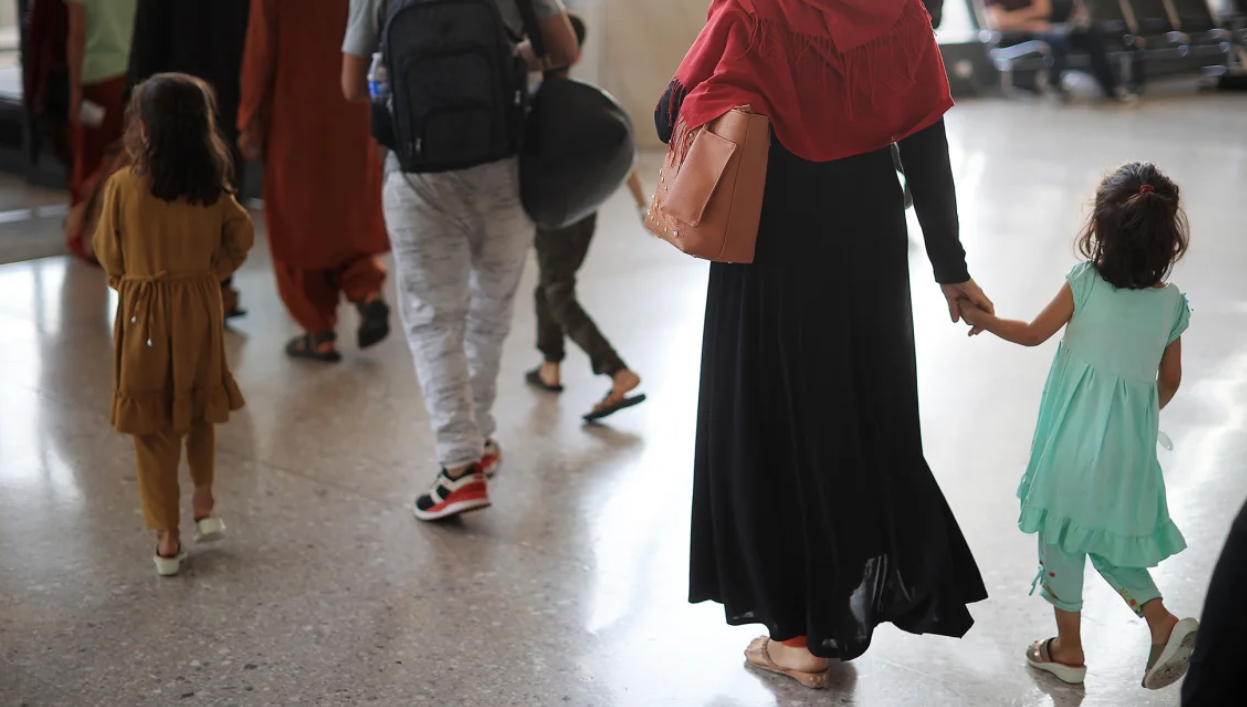Refugees who were set to travel to the United States after a lengthy and often challenging process have had their flights canceled, according to a memo from the State Department to resettlement organizations. This development follows President Donald Trump’s executive order suspending refugee admissions and highlights the immediate impact of his decision. The cancellation affects thousands of refugees who had already arranged their travel. The memo states that all previously scheduled refugee flights to the U.S. have been canceled, and no new travel arrangements will be made. It also instructs Resettlement Support Centers (RSCs) not to request travel bookings for any additional refugee cases at this time.
Approximately 10,000 refugees who had already booked travel to the United States now face canceled flights, as confirmed by a source with knowledge of the situation. While the specific breakdown by country is not immediately available, refugees typically come from countries like Afghanistan, the Democratic Republic of Congo, Venezuela, Syria, and Burma.
The cancellations are especially concerning for refugees whose medical exams or security checks are about to expire. Additionally, the State Department memo indicates that all refugee case processing and pre-departure activities have been halted, effectively suspending the entire program. It further instructs Resettlement Support Centers (RSCs) and the International Organization for Migration (IOM) to stop moving refugees to transit centers and to halt all activities related to refugee departures. No new referrals for the U.S. Refugee Admissions Program (USRAP) should be made.
However, Special Immigrant Visa (SIV) holders, such as those who worked for the U.S. abroad, are exempt from the suspension and can still travel to the U.S. Refugees already in the U.S. will continue to receive services.
For years, the U.S. State Department’s Office of the Coordinator for Afghan Relocation Efforts (CARE) has been assisting Afghan allies and partners, including those not holding SIVs, by flying them from Afghanistan to third countries like Pakistan and Qatar for processing. Now, those individuals who are not SIV holders are essentially stranded in these countries, with no clear solution in sight. In Doha, there are over 1,000 Afghan refugees, and up to 10,000 are in Pakistan. Many others are scattered across various countries, and their cases have been frozen, leaving them uncertain of their future.
The cancellation of flights and the suspension of cases put tens of thousands of Afghan refugees at risk, including those who aided U.S. forces during the war but haven’t received SIV status. Advocacy groups warn that this move endangers those who risked their lives for U.S. missions, including Afghan families of U.S. troops and Afghan women pilots who worked alongside U.S. soldiers.
President Trump’s executive order, signed on January 20, states that the U.S. is unable to handle the influx of refugees and migrants from recent years, prompting the suspension of the refugee admissions program until further notice. The suspension is set to take effect on January 27, but the memo suggests that it is already in effect. This action is part of the administration’s broader immigration agenda, which emphasizes limiting U.S. entry on the grounds of public safety and national security.
Under the Biden administration, the U.S. had set a refugee admission cap of 125,000 people per year.













